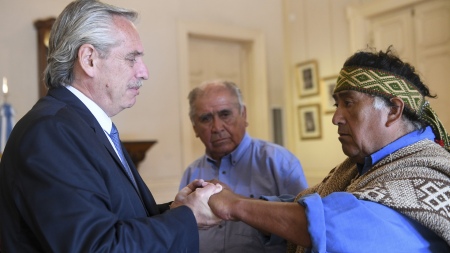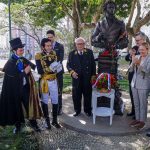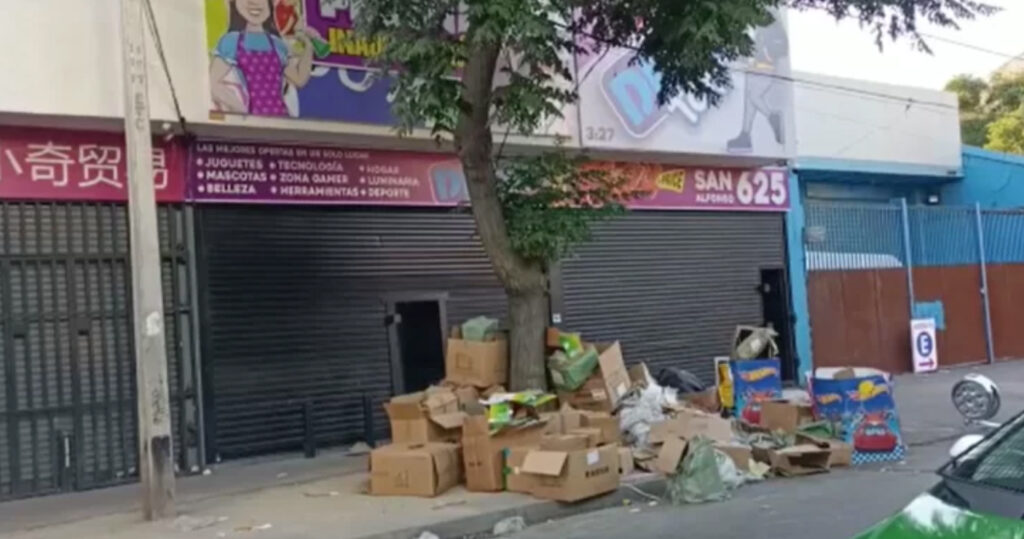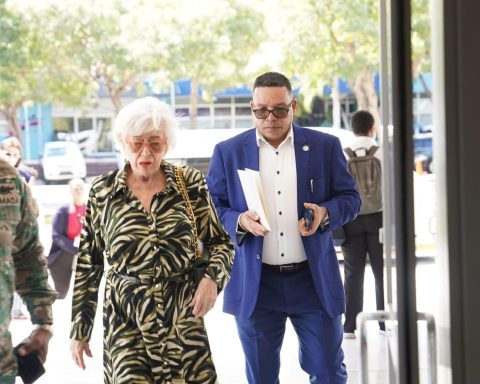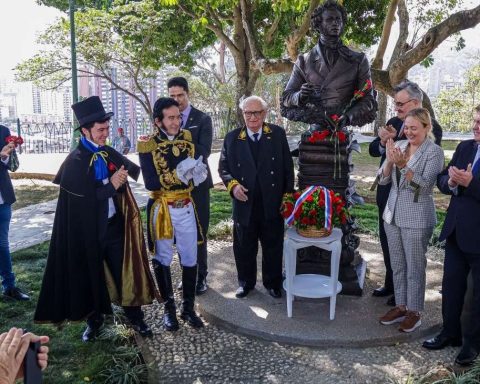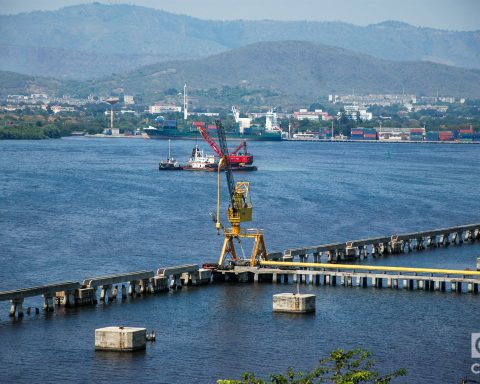President Alberto Fernández received this Wednesday members of the Mapuche community of the Williche territory, with whom he discussed the need to advance in a solution in relation to the territorial conflict.
The meeting was held this afternoon in the Eva Perón Room of the Casa Rosada and the president was accompanied by the Secretary of Human Rights, Horacio Pietragalla Corti; and the president of the National Institute of Indigenous Affairs, Alejandro Marmoni; official sources reported.
In this framework, the president requested that the Human Rights Secretariat convene a dialogue table within a maximum period of 10 days and then, within two months, hold a new meeting at Government House.
The head of state had a meeting on October 11, in the framework of the visit he made to Neuquén, where they raised the issues to start looking for a joint negotiation
Fernández reiterated his commitment to guarantee respect for the native cultures of Argentina and the need to continue the dialogue to advance in multicultural construction.
“You have a government that receives you with its own culture, its identity, as brothers that we are,” the President told those present and called on them to “dialogue.”
During the meeting, the members of the community told him that for the first time they were being received at the Casa Rosada, at the same time that they expressed their concern about the situation of the detainees in Villa Mascardi, and renewed their predisposition to organize a space for dialogue to resolve the conflicts.

The head of state had a meeting on October 11, in the framework of the visit he made to Neuquénwhere they raised the issues to start looking for a joint negotiation.
Participating in the meeting were María Luisa Huincaleo, Pillan Kushe from the Fentren Kimun Mapuche Community (Chubut); Felipe Suárez, from the Council of Elders of the Nahuelpan Mapuche Community (Chubut); Ángel Quilaqueo, Lonko of the Nahuelpan Mapuche Community (Chubut); Soraya Guitart, Pillan Kushe from El Bolsón (Río Negro); Carlos Curruhuinca, Lonko of the Curruhuinca Community (Neuquén); Mauro Egor Millán, Lonko of the Pillan Mahuiza Mapuche Community (Chubut); María Elena Tripailaf, Pillan Kushe of the Paine Filu Community (Neuquén); and María Isabel Huala, Lonko lof Hualahue (Río Negro).

Also in attendance were Orlando Carriqueo, Werken of the Mapuche Parliament of Río Negro; Leticia Curruhuinca, Lawentuchefe of the Curruhuinca Mapuche Community (Neuquén); Natalia Verónica Rivera, from the Nahuelpan Mapuche Community (Chubut); Karina Hernández, Mapuche communicator for the National Radio program Viedma Afafan and Radio Encuentro; Iris Romero, from the Curruhuinca Mapuche Community (Neuquén) and Werken from the Community Health System; María Isabel Nahuel, Relmu Lafken winkul Mapu (Río Negro); and the lawyer María del Rosario Fernández.
While the hearing was taking place in Casa Rosada, in Plaza de Mayo there was an open radio, and there the Buenos Aires legislator Mercedes de Mendieta, from the Socialist Left in the Left and Workers Front (FIT) accused the businessmen Joe Lewis and Luciano Benetton to stay “with our territories and those who seek to keep our strategic resources,” while “the Mapuche people, the Mapuche women, show us what it is to be organized, what it is to fight for historical reparation.”

“We are going to continue fighting for the freedom of La machi (Betiana Colhuan Nahuel),” said Mercedes de Mendieta about the woman from the Mapuche community Lof Lafken Winkul Mapu, arrested on October 4 during the operation that federal forces carried out in the lots usurped in the Villa Mascardi area by order of federal judge Silvina Domínguez.
“We are also going to continue accompanying the fight of the Mapuche people so that those lands that belong to them remain as community property and so that the true usurpers of our lands throughout the country leave, that the businessmen who keep our resources leave.” , he synthesized.
And he considered that “behind that there are also large businesses, with tourism, and we know that they want to keep our water, because there is also an extractivist policy on which they want to continue advancing.”
